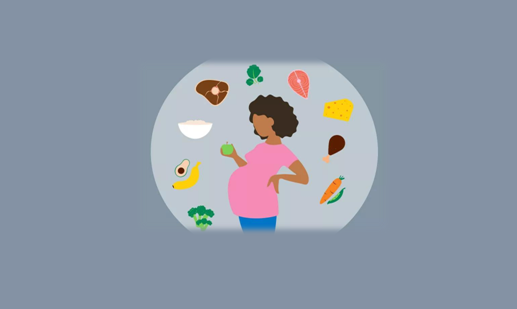Pregnancy significantly increases a woman’s nutritional needs. Both the baby’s growth and the mother’s health rely heavily on proper nutrition during this vital time. Eating well helps the baby develop, lowers the risk of complications, and gets the mother ready for childbirth and nursing.
Why Nutrition Matters During Pregnancy
A pregnant woman experiences major changes in her body. She will have more blood, altered organ positions, a faster metabolism, and greater nutrient needs. These changes are necessary to support the developing baby, but they also mean that nutritional needs must be met more carefully than ever before.
Lack of good nutrition during pregnancy may lead to:
– Low birth weight
– Premature birth
– Developmental delays
– increased likelihood of chronic illnesses in later life for the child
In contrast, a nutritious diet encourages:
– Healthy brain and organ development
– Strong immune system for mother and baby
– Reduced complications during pregnancy and birth
Key Nutrients for a Healthy Pregnancy
Folic Acid (Folate)
• Why it’s important: Prevents neural tube defects (NTDs), such as spina bifida.
• Sources: Citrus fruits, legumes, leafy greens, and fortified cereals.
• Recommended intake: 400–600 mcg daily, starting before conception.
Iron
• Why it matters: reduces anemia and promotes increased blood volume.
• Sources comprise red meat, beans, spinach, as well as fortified grains.
• Recommended intake: Pair with vitamin C-rich foods to enhance absorption.
Calcium
• Why it’s important: Builds baby’s bones and teeth; protects mother’s bone density.
• Sources: Dairy products, fortified plant milk, tofu, leafy greens.
• Recommended intake: 1,000–1,300 mg per day.
Omega-3 Fatty Acids (DHA)
• Why it matters: Vital for the development of the brain and eyes.
• Sources: Fatty fish (e.g., salmon, sardines), flaxseeds, walnuts, supplements.
Protein
• Why it’s important: Vital for growth of fetal tissue, including the brain, and maternal tissues.
• Sources: Eggs, poultry, lentils, dairy, soy products.
• Recommended intake: About 75–100 grams per day depending on body weight.
Vitamin D
• Why it matters: Promotes immunological and bone health.
• Sources comprise sunrays, fatty fish, vitamins, as well as fortified foods.
Fiber and Fluids
• Why it’s important: Prevents constipation, supports digestive health.
• Sources include fruits, vegetables, whole grains, along with lots of water.
Foods to Avoid During Pregnancy
– Raw or underdone eggs and meats (possibility of listeria & salmonella)
– Unpasteurized dairy products
– High-mercury fish (like swordfish, king mackerel)
– Overdosing on caffeine (no exceeding 200 mg a day)
– Alcohol (no safe amount has been established)
Special Considerations
– Morning sickness: Drink plenty of water and eat frequent, small bites.
– Gestational diabetes: Emphasize complex carbs and fiber; avoid sugar spikes.
– Vegetarian or vegan diets: May require extra planning or supplements (e.g., B12, iron, DHA).
Practical Tips for a Nutritious Pregnancy
– Arrange meals that are well-balanced and include a range of food groups.
– Use prenatal vitamins to fill any nutritional gaps.
– Unless your healthcare practitioner instructs you differently, continue to be active.
– Pregnancy symptoms like hunger and exhaustion are real, so pay attention to your body.
Final Thoughts
Nutrition during pregnancy is about more than just “eating for two”—it’s about nourishing for two. A nutritious diet that is high in essential nutrients lowers the mother’s risk of problems while laying a solid basis for the child’s long-term health. With the right knowledge and support, every expecting mother can make food choices that benefit both her and her growing baby.
